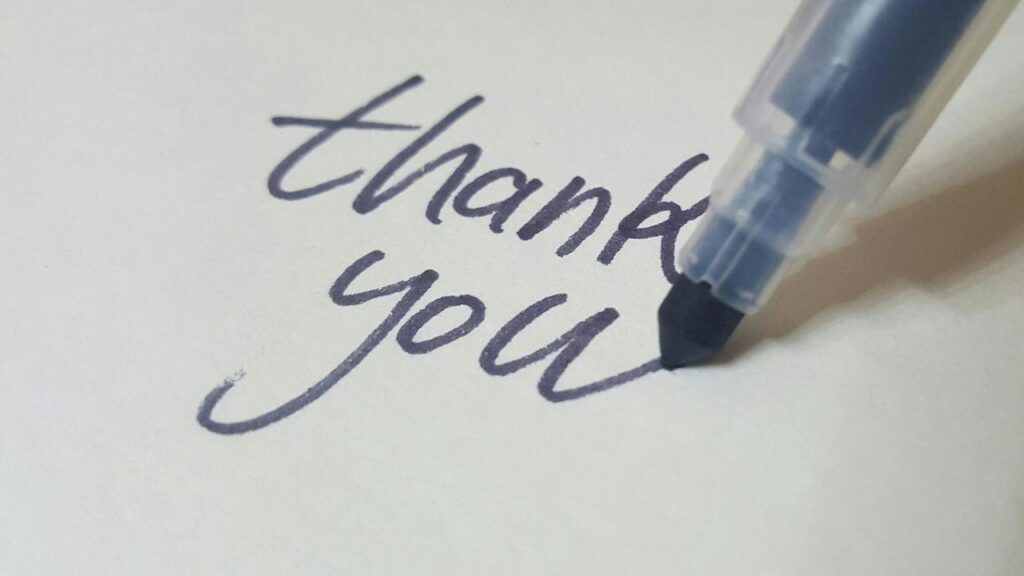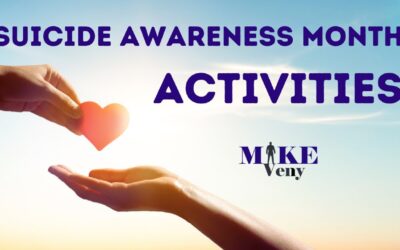
Dear Diversity and Inclusion Officer,
Thank you! I mean that sincerely. Thank you for the work that you do as a Diversity and Inclusion Officer. Thank you for the heart, time, and effort that you invested in it. Yours is a position that is so necessary in the world today, yet it’s a thankless and often unappreciated one.
But I can assure you that the work you’re doing matters, even on the days when you look around your office and feel like there’s no progress being made.
Who am I?
You may be thinking something like, “Alright, who is this guy and why does he think he knows anything about me or my position?”
I’m one of the many people in this world that you’re working so hard for. As a black man who has lived with mental health challenges since childhood, there are many times when I have felt excluded, left out, and different.
There are many times throughout my life when it would have been nice to have someone working to focus on making inclusion a priority for me. Now, as an adult who has based my life’s work on trying to help others who feel the same way that I used to because of their own mental health challenges, I see how the work you’re doing is making a difference.
Diversity and inclusion is not an easy job
As a keynote speaker who delivers workshops to address things like diversity and inclusion along with mental health, I see some of the struggles that you have.
Don’t get me wrong. I’m not trying to say that I know exactly what you’re going through. I get to come in for a training or meeting, have fun with the employees at your office, leave them with tips that they can implement in their lives if they choose, and then I head home.
You, on the other hand, are in the trenches of your office day after day.
You have the difficult job of trying to convince the employees of why the work that you’re doing matters to them. It’s constantly on you to not only have to educate the staff on diversity and inclusion topics but also to prove to them why they should care about it. And unfortunately, they don’t always.
However, what most of the employees that you’re trying to reach don’t realize, is that you often have to convince the C-level executives of why it matters as well.
Many executives don’t understand diversity and inclusion efforts
We have come to a time in history where businesses can’t help but admit that diversity and inclusion are important. The numbers show that companies with more diversity see the benefit of it on their bottom line. They can’t deny the numbers.
Yet, many business owners and managers don’t really “get it”. They think they do, so they hire people like you to fill the role of CDO and make it happen. But they don’t really want to make the changes and effort that are necessary on a daily basis.
In fact, one survey found “that many D&I initiatives are disconnected from business priorities, and that CDOs often lack the necessary resources or organizational support to make lasting changes.”
And that leaves you in a difficult position. You might feel that you have been set up for failure.
But don’t give up!
You may feel alone in your work
You matter and the work that you’re doing every day matters. Inclusion matters. You understand that. And yet, you might even experience the exact opposite within your own career.
I’ve talked to many Chief Diversity and Inclusion officers who are lonely at work.
They feel every day that they have to work extra hard to prove their worth. And, there are plenty of days when they feel that they’re overlooked, underappreciated, and sometimes even like they don’t really “fit in” with the other company executives.
And you can probably relate to that. Some days, you feel excluded. You fit the exact role of the person that you’re working so hard to help.
Why your work matters so much
Regardless of what other executives think, your work is not just about making a difference for the bottom line of the company you work for. You’re helping to make a difference for each individual person who interacts with the brand that you are helping to build, including both the employees and customers.
You are showing them that they matter and someone is seeing them.
We all want to be included
In my book Transforming Stigma: How to Become a Mental Wellness Superhero, I talk about the Law of the Tribe. We are a tribal people at our core. We don’t want to do life alone. Everyone wants to be included in the group.
There are some who will act like they don’t care to be part of the group, but they really do.
When we are missing this aspect of inclusion within our society it leads to things like mental health stigma and an “us” vs “them” culture.
You are helping to improve the human experience
I don’t think enough people realize what diversity and inclusion efforts are all about. Too often the media spotlight is being pointed in the wrong direction.
It’s not a minority vs majority race issue. It’s not a gay vs straight issue. And, it’s not a gender issue.
Diversity and inclusion efforts are about people. All people.
The work you do is all about the human experience. It’s creating a place where people can feel included for who they are, exactly as they are. When someone feels that they are part of the tribe, it changes their lives in amazing ways.
When someone doesn’t feel like the weird outcast, they start to feel more confident. This spreads into every area of their life. They start to believe they can be accepted for who they are.
This leads to improved work performance, better relationships, and a new sense of belonging. These are some examples of how D&I efforts and mental health go hand-in-hand.
Your D&I efforts are helping people with their mental health
When someone feels excluded at work, it can lead to struggles with mental health and getting caught in the Stigma Cycle™. Here’s how it works.
Imagine an employee or customer feeling excluded by your company. They feel that because of who they are and how they are, they can’t be part of your tribe. This can make them feel ashamed of who they are.
This shame leads to silence. It could be that they’re afraid to speak up. Or, it could be that they feel so bad about themselves that they don’t want to mention it to anyone. But that doesn’t mean everything is OK with them.
The silence causes them to turn inward and this can lead to things like anxiety, depression, and self-destructive behaviors. This could include things like:
- Cutting (Adults do this too, even though people usually think of it with teenagers.)
- Abusing alcohol
- Using drugs
- Overeating
- Gambling
- Making poor sexual decisions
- Overspending
They also might struggle with intense emotions like hurt, sadness, and anger.
And, even though they work hard to hide these behaviors from others, like their coworkers, what do you think it does for their work performance? As people fall farther down the spiral of the Stigma Cycle™ every area of their life will be impacted. Their work. Their relationships. And, their health.
The work you do has the power to help break the Stigma Cycle™. You’re like a superhero!
Simply by helping everyone to feel included, you can help people to avoid going down this dangerous road.
And, it doesn’t have to be perfect
It’s a struggle to find the right ways to educate people on inclusion. Many employees have heard the same message about “diversity” over and over again, so they’ve checked out.
But even if your programs aren’t perfect, you’re making a difference. Even on the days when you feel like you’re hitting a wall. Because while everyone might not be engaged and listening to your message, some are. You are making a difference, even if it’s little by little.
And that’s really cool.
Are you taking care of yourself?
I’ve noticed something about the Chief Diversity Officers that I’ve worked with—they struggle to take care of themselves. Does this sound familiar?
Your job isn’t just something that you do from 9-5. It’s something that you feel passionately about. Many of you are volunteering your time outside of your “work hours” to continue helping the D&I efforts.
You care about helping those that are often overlooked. You want to speak up for those who don’t speak up for themselves. And, you want to see a world where everyone is treated the same.
This isn’t about a paycheck. It’s a mission. It’s important to you. And, I respect you for that.
But there’s a common problem that comes along with having a career that is driven by passion. It’s easy to get so caught up in the work that you’re doing that you forget to take care of yourself. This can have a negative impact on your own physical and mental health as you work to help everyone else.
And, that’s why you have to make time to take care of yourself.
Self-care tips for Chief Diversity Officers
I care about you. It’s one of the reasons that I do what I do. We have a shared mission to help others. I am appreciative of the work that you do for people. And, since my goal is to help others with mental wellness, I’d love to provide you with self-care tips to make sure that you’re taking care of yourself.
You can’t effectively do the work that you are doing as a D&I officer if you’re burnt out, exhausted, and struggling with feeling mentally well.
I encourage you to start by taking time each day to answer the following 3 questions:
- What’s going on inside me right now?
- How am I feeling right now?
- What do I need right now?
These questions will help you to take a good look inside of yourself. But you need to make sure that you give yourself time to answer these honestly. Try to get to the bottom of each question.
And if you want to hear a little more about how I use these questions in my life and how they can help you too, you can check out this video below.
Self-care tips and habits
Here are some self-care tips and activities that can help you keep your mental wellness in check as you work on spreading the message of inclusion:
- Spend time with people that refresh you.
- Do a hobby you enjoy that isn’t related to diversity and inclusion.
- Make time for exercise, even if it’s just going for a walk.
- Try journaling at the end of the day to unload any of your stress.
- Practice mindfulness and meditation.
- Create a morning routine that helps get your day off to a good start.
- Don’t be afraid to talk to a therapist if you’re struggling in an area of your life.
Look for things that you can do each day that leave you feeling refreshed. Make time for fun and laughter. And, look for healthy ways to relieve the stress that you deal with daily.
Remember that the work you’re doing matters
I know that you might not hear the words “thank you” very often.
You’re in a position with lots of demands. When it comes to diversity and inclusion the world we live in right now is full of tension and you are thrown right into the midst of it. It’s not an easy job, but it’s vital to our future. So, thank you from the bottom of my heart.
Thank you for being willing to step into a role that many people are afraid to do. Thank you for being willing to push back when you see an injustice. And, thank you for the difference that you are making for people’s mental wellness.
Remember, it’s about more than just the numbers, you are bettering the world for others.
And, if there’s any way that I can work with you to help you achieve your goals through my diversity and inclusion presentations, let me know. I’d love to help someone who’s working so hard to help others!



